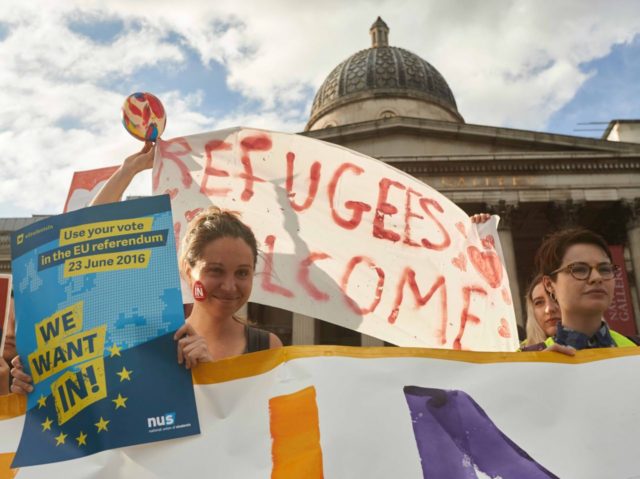Although the polls suggest that British voters seem ready to vote “Bremain” in their June 23 referendum on European Union membership, the possibility of the “Brexit” caused Switzerland to withdraw its application to join, and other EU states to demand referendums. Win or lose, the EU seems to be going the way of the Soviet Union.
Recent opinion polls show the “leave” and “remain” camps in a neck-and-neck contest for the 10-15 percent of the British population that is still undecided. But traditionally, close polls favor the status quo.
If the “leave” camp wins the referendum, the actual “Brexit” could take years to implement. According to Article 50 of the Treaty on European Union, passed during the Greece crisis in December 2009, members that want to leave the Continental bloc must first negotiate the terms of their exit with the EU bureaucracy to develop a framework for their future relationship with Europe, according to Stratfor Global Intelligence.
The process is technically limited to a two-year transition, but that clock would not start running until the UK government’s bureaucracy chooses officially to “notify the European Union of its intentions.” Because that provision has never been invoked, it is unclear how comprehensive a withdrawal agreement would have to be structured to satisfy Rule 50.
The UK would remain a full-member of the EU, and still be considered a full EU member bound by the bloc’s rules and treaties until all the exit negotiations had been concluded with the EU bureaucracy. The earliest that could be completed is late 2018.
If a withdrawal agreement were finally negotiated, it would then need to be passed by a vote of the European Council, as well as by the full European and British parliaments. If any party voted against the agreement, then all the parties would have to go back to the negotiating table.
The Brits could just leave, but that would disrupt relationships with their largest trading partner and make the talks between London and Brussels even more difficult. There also is no provision in Article 50 that allows a country that had notified the EU of its decision to withdrawal to change its mind and decide to stay.
To frighten UK voters into voting “Bremain,” the British Treasury published an economic “model” that estimates a Brexit would reduce Gross Domestic Product (GDP) per household in the UK in 2030 by $6,321. The Treasuryis making the false assumption that the world’s fifth largest economy will never be able to negotiate any trade agreements with EU members after a Brexit.
But the economics of the EU are increasingly disadvantageous for the UK. The British still pay approximately 12 percent of the EU budget, despite the share of UK exports going to the EU withering from 54 percent in 2006 to 44 percent in 2015.
Stratfor believes that if voters approve the referendum, Germany would want to come to a quick settlement agreement in order to minimize any financial instability. But Stratfor also believes that France will want to be very vindictive, to send a message to the Eurosceptic parties that have spread across the EU. This conflict among the EU’s largest economies could create real chaos.
The Swiss had applied to join the EU. But watching the European establishment’s dishonesty in trying to defeat a Brexit, the Swiss Parliament just voted 27 to 13 on June 16 to rescind the application to join the EU.
What may be the beginning of the end of the European Union has great similarities to the beginning of the end of the Soviet Union of Socialist Republics, whose 1977 Constitution Article 72 stated, “Each Union Republic shall retain the right freely to secede from the USSR.”
The three Baltic republics of Latvia, Lithuania and Estonia declared their independence from the USSR in the spring of 1991. Nine months later, the 11 Soviet republics — the Russian Federation, Ukraine, Belarus, Armenia, Azerbaijan, Kazakhstan, Kyrgyzstan, Moldova, Turkmenistan, Tajikistan and Uzbekistan — met in the Kazakh city of Alma-Ata and announced that they would no longer be part of the Soviet Union.
On Christmas Day 1991, the huge Soviet flag that flew over the Kremlin in Moscow came down for the last time.

COMMENTS
Please let us know if you're having issues with commenting.